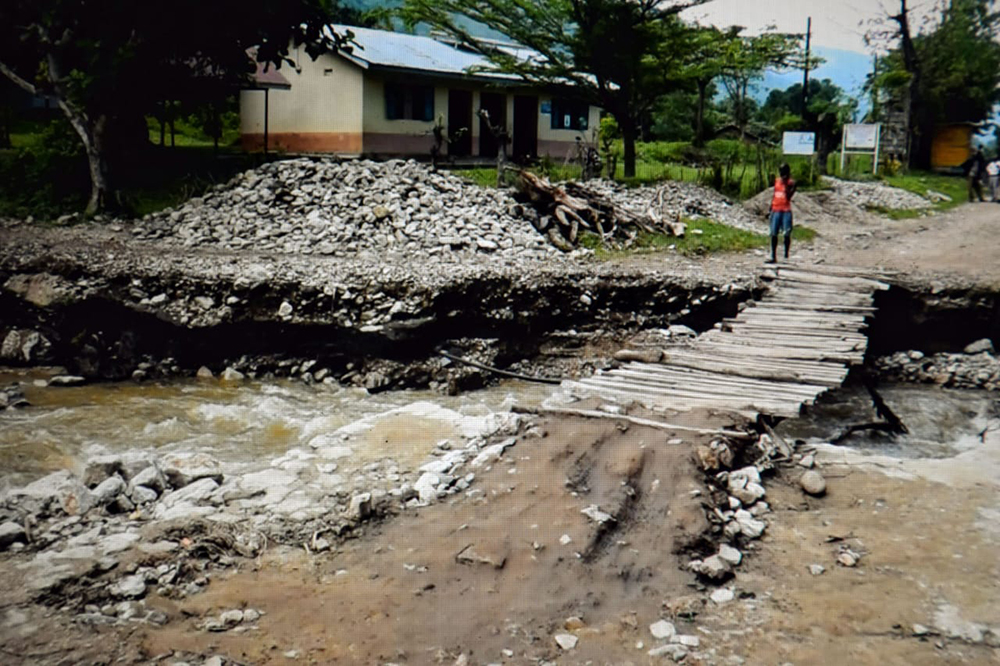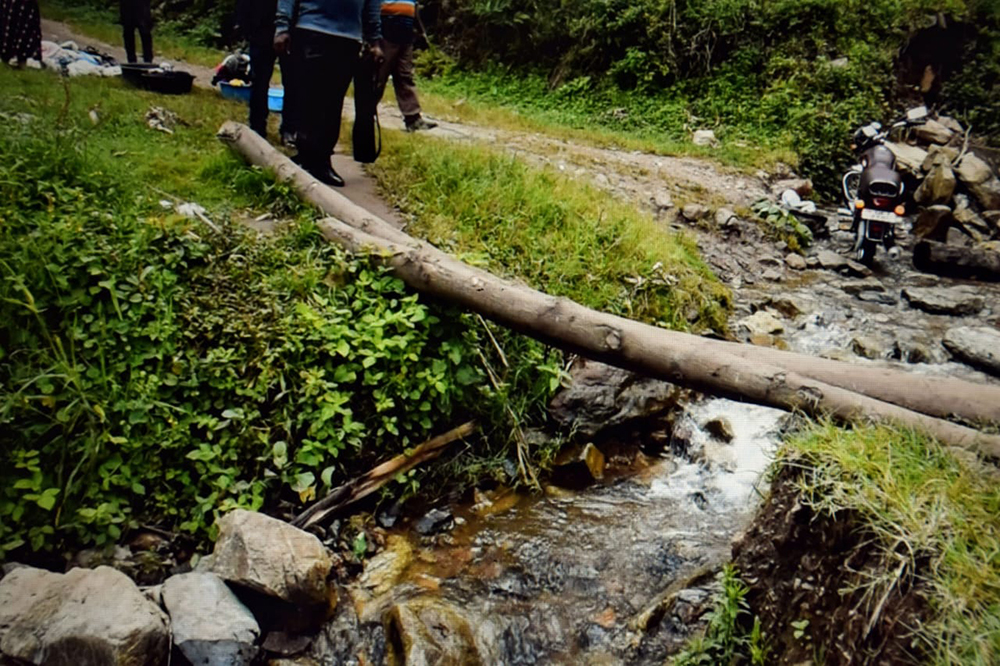‘Bughendera district creation aimed at improving service delivery’
“The demand for Bughendera as a district is long overdue and only aimed at improving service delivery and development of the area. It is not ethnic, and a tribal district, but a move aimed to ensure access to improved education, safe water, and healthcare, among other infrastructure to residents,” remarked Kibazanga.
Former agriculture state minister Christopher Kibazanga insisted that Bughendera district out of Bundibugyo will decentralise services and ease long-standing ethnic tensions. (New Vision/Files)
The creation of Bughendera district out of Bundibugyo is to improve service delivery among residents, several leaders, stakeholders, and residents have said.
Former agriculture state minister Christopher Kibazanga insisted that the move will decentralise services and ease long-standing ethnic tensions.
“The demand for Bughendera as a district is long overdue and only aimed at improving service delivery and development of the area. It is not ethnic, and a tribal district, but a move aimed to ensure access to improved education, safe water, and healthcare, among other infrastructure to residents,” remarked Kibazanga.
He urged the population within the area to stop fighting the move based on their religion, culture and tribes, saying “President Yoweri Museveni’s acceptance to grant Bughendera a district status as a visionary leader is for the good of citizens.”
Kibazanga made the remarks as hundreds of residents and several leaders gathered for a community dialogue in Ngite Subcounty, Bundibugyo district, to welcome the move and discuss how it will bring services closer to people.
Residents argue that the terrain of the Rwenzori region, coupled with poor roads should be improved once the district begins operating.
Improving road network
Residents argue that the terrain of the Rwenzori region, coupled with poor roads and broken bridges, such as one at Nkubbangaale River, makes transportation nearly impossible, especially during the rainy season.
It’s on this background that residents say the poor service delivery and inadequate infrastructure that have long left their communities lagging behind will now improve once their district begins operating.
Residents speak out
“We are tired of walking long distances just to access basic services,” said Benjamin Robert Bwambale, a teacher at Kisongo Secondary School.
He added, “If Bughendera becomes a district, schools, hospitals, and offices will be within reach. Right now, everything is far and difficult to access.”
“Nkubbangaale River broke its banks, cutting off entire villages,” said Thungu Jeninasi, a stone quarry worker from Kirindi Village. “Children can’t go to school, and women can’t reach health centres. We risk our lives crossing flooded waters daily.”

Magyezi estimated the cost of operationalising the new units at about sh26 billion but defended the expenditure as essential to bring services closer to citizens.
Leaders speak out
Mbatya sub-county LC III chairperson Musa Bamuhale said Bughendera district creation was not political, but about equity.
“Service delivery is the biggest challenge here. A new district would mean a new beginning — with better planning and attention to local needs.”
Alfa Asuma, the Harugale LC III chairperson, said their need for a district reflects a deep-seated desire among Bughendera people for dignity, representation, and development.
“We have been lobbying for a district since the 1990s,” said Thomas Jimwindo, the LC1 Chairperson of Ngite Parish.
He added, “Our people are committed and ready for self-administration. What is left is for the government to listen to our cry.”
Community mobiliser Moris Bandaliza called for unity among leaders.
“If we stand divided, we will continue to suffer,” Bandaliza urged. “Let us speak with one voice so that Kampala understands that this is not a luxury — it’s a necessity.”

“We are tired of walking long distances just to access basic services,” said Benjamin Robert Bwambale, a teacher at Kisongo Secondary School.
NRM caucus supported the move
Government Chief Whip Hamson Denis Obua told reporters on September 13, 2025, that the NRM caucus had unanimously supported the proposal during a meeting at State House Entebbe, describing it as a step towards improving service delivery and resolving long-standing disputes in Bundibugyo.
Government defends move
Local government minister Raphael Magyezi said the new administrative units would be “deemed created” in July 2025, in line with Section 7(13) of the Local Government Act.
This means the districts and the city will take effect six months before the 2026 general elections. The Attorney General and Electoral Commission will determine when elections for the new constituencies are held.
Magyezi estimated the cost of operationalising the new units at about sh26 billion but defended the expenditure as essential to bring services closer to citizens.
“Yes, there is a cost, but there is an advantage,” he said, citing Uganda’s 5.3 percent annual urbanisation rate, one of the fastest in Africa, as justification for decentralisation.